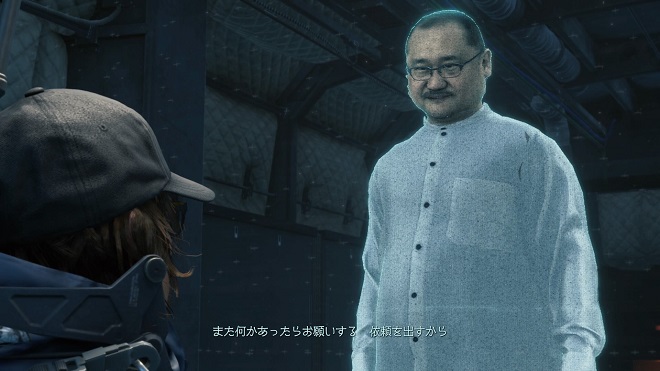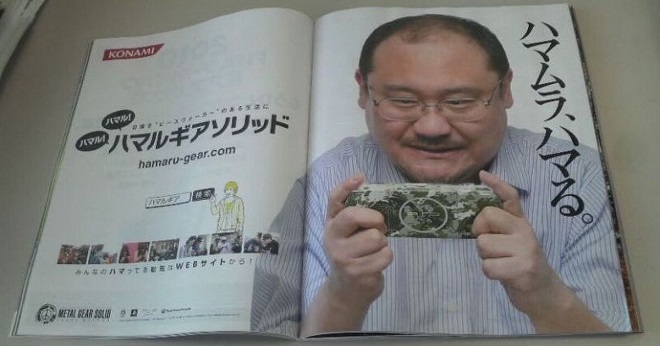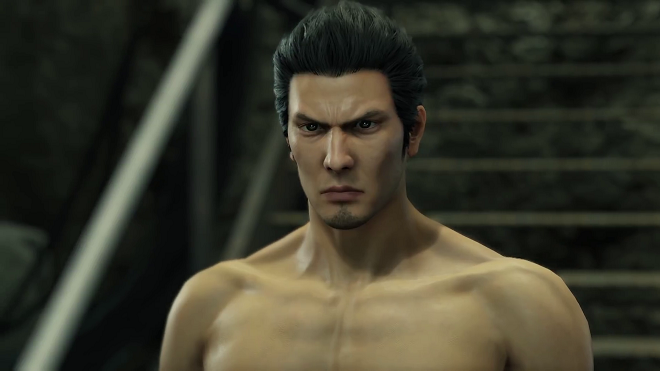Cognition Dissemination: Famitsu’s Corruption Goes Beyond the Bounds

Death Stranding, the first post-Konami project from Metal Gear series creator and director Hideo Kojima, contains a number of unique features for a AAA video game. Among them is the prominence of Preppers, who receive the packages that protagonist Sam Porter Bridges delivers — a main character whose name bravely represents Kojima’s modern unsubtlety. The Preppers stick out because they use the likenesses of Kojima’s friends and actors, including host Geoff Keighley and late-night host Conan O’Brien. But Japanese players are collectively perturbed about a peculiar cameo.
One of the Preppers uses the likeness of Famitsu CEO Hirokazu Hamamura, who appears as “The Collector.” His Japanese dialogue references Sam potentially entering a Hall of Fame, a notable refence to Famitsu’s own vaunted category of the same name that includes games they’ve given high scores to. Famitsu mascot Necky the Fox also appears in the game as a mural.

Hell, this isn’t even the first Famitsu cameo worth a side eye in A Hideo Kojima Game. This goes as far back as a magazine appearing on a shelf in the Japanese version of Metal Gear Solid 3: Snake Eater, which released 15 years ago in 2004. These types of references continued in future games, including a camo soldier with the Famitsu logo in Portable Ops and a special downloadable card in Metal Gear Acid 2. This reached its zenith with Metal Gear Solid: Peace Walker, where a Famitsu magazine appears as an item and the above CEO appeared in an ad. Famitsu also happened to give Peace Walker a perfect 40/40 score, because, you know, all the editors enjoyed it that much.
Don’t worry, this crookedness gets even worse. Famitsu is owned by Kadokawa Corporation, who also has their own line of video game companies, including Kadokawa Games and, as of 2014, FromSoftware. A publisher that cared even a little about ethics wouldn’t cover those games, let alone review them, knowing that doing so would amount to brazen conflicts of interest. That does not describe Famitsu, so of course they’ve covered them.
It’s been known for years that Famitsu has been crooked, with accusations that the reviews are brought and paid for. There’s a reason why the translated review excerpts are some of the most vacuous nonsense you’ll ever read. There was a story about a former writer who documented how the reviews were indeed approved by publishers before being printed, especially with games from larger publishers. The documentation is unfortunately all in Japanese, and hasn’t been translated. But you don’t need that to know there’s something peculiar happening here.

The key word there, of course, is “slightly.” Any gaming community that wants to even start changing this will face nigh-insurmountable odds, thanks to the way-too-close relationships companies have with Famitsu. Not to mention how impossible it would be to take on Kadokawa Corporation, one of the largest monoliths in Japan. The “competing” line of gaming magazines in the country are part of the Dengeki series, published by ASCII Media Works. ASCII is owned by — you guessed it — Kadokawa Corporation. Ridiculous. There’s a reason why several Japanese gamers feel they can only trust user previews and reviews, which apparently tend to be more, though not entirely, worthwhile in Japan.
Any other company worth their salt will find establishing a competing magazine a pointless endeavor these days. The Japanese magazine market is healthier than the European and especially American markets, but it doesn’t qualify as healthy per se. This would doubly apply for a video game-focused magazine, in a country where the hobby’s popularity has been slowly waning for over a decade now. Establishing a new website focused on games might be easier, but even then, finding the necessary readership to sustain it will be harder if the audience isn’t there to support it.
Given all those factors, it’s tough to blame anyone for simply saying this really is just the way things are; and thus, they’ll remain the things that will be. Expect the Famitsu CEO cameo in Death Stranding to remain as it is, and they may not even bother commenting on it despite the Japanese community raising questions. Also expect shady deals for review scores to continue. Cynicism wins out way too often.





